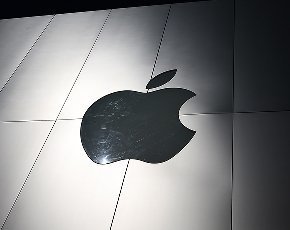
2015 will be the year of mobile payments service Apple Pay, according to Apple CEO Tim Cook. But will it inject energy into other technology firms with their eyes on new business opportunities in the financial services sector?
Retail banks are being set up to take on established banks in areas such as current accounts, savings and loans. These companies have been buoyed by the early success of Metro Bank, which was the first new bank in the UK for 150 years when it was launched in 2010.
2015 will be the year of mobile payments service Apple Pay, according to Apple CEO Tim Cook. But will it inject energy into other technology firms with their eyes on new business opportunities in the financial services sector?
Retail banks are being set up to take on established banks in areas such as current accounts, savings and loans. These companies have been buoyed by the early success of Metro Bank, which was the first new bank in the UK for 150 years when it was launched in 2010.
According to reports, Cook said Apple Pay accounted for two of every $3 spent using contactless payments across Visa, Mastercard and American Express in the US – where it was launched in October 2014. The company has more than 700 banks and credit unions supporting the service in the United States.
During the announcement of Apple’s results, Cook said: “We are more convinced than ever that 2015 will be the year of Apple Pay.”
In December 2014, an Apple job listing revealed the company’s plans to expand Apple Pay globally.
The job listing, which has now been removed, was revealed by website iClarified. The advert detailed plans to expand the service across Europe, the Middle East, India and Africa.
Apple Pay success a sign of change
The success of Apple Pay is a sign of change in the financial services market and indicates the future role of IT companies in the sector.
For example, Google has a mobile wallet and is reported to be in talks to acquire Softcard from AT&T, T-Mobile and Verizon for around $100m. Softcard enables consumers to pay for goods and services by tapping their mobile phone on a contactless reader using near-field communication technology.
Facebook is seeking regulatory approval to offer certain financial services, while some banks are even making payments via Twitter.
These internet giants boast high-performance IT infrastructures that process huge volumes of transactions every day. They are also used by millions on a daily basis. It makes sense to offer offer financial services where most consumer online activity is already taking place.
A simple web search reveals the scale of customer bases of banks and their challengers. PayPal has 157 million active users, which is more than most banks, while Facebook has more than a billion users and holds a lot of sensitive data. Amazon boasts more than 244 million users.
In comparison, Lloyds Bank has 30 million customers, HSBC has 52 million customers and Barclays has 48 million customers.
But challenges remain. A study of more than 6,000 people from Bizrate Insights revealed only 21.4% of people trust Apple with their bank details. In comparison, 72% trust their banks, 48.9% trust Paypal, 45.4% trust Amazon and only 12.9% trust Google.
